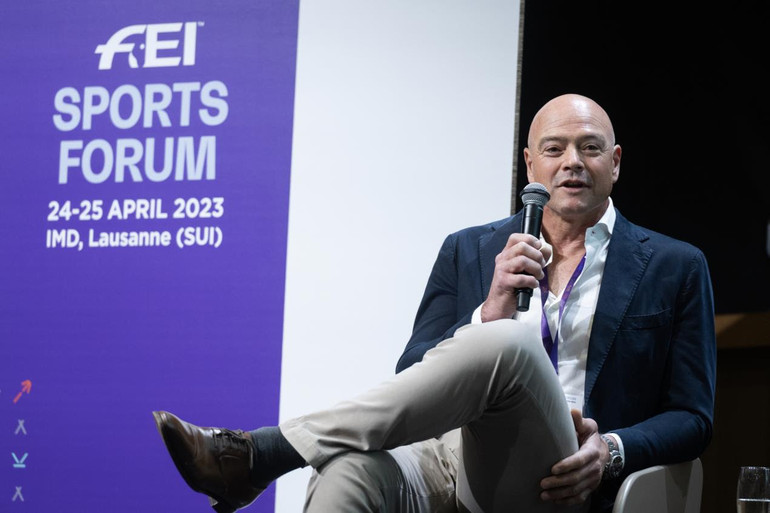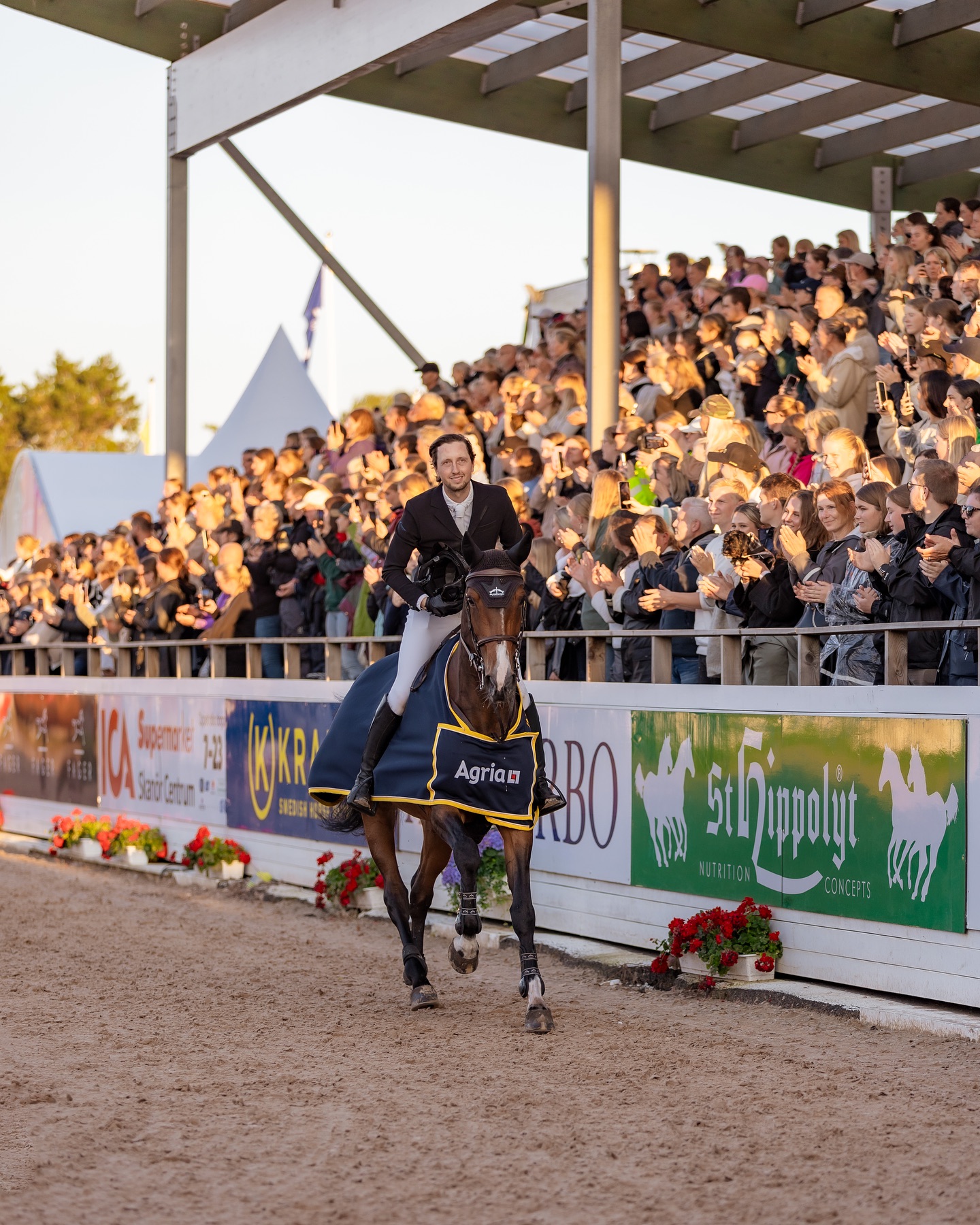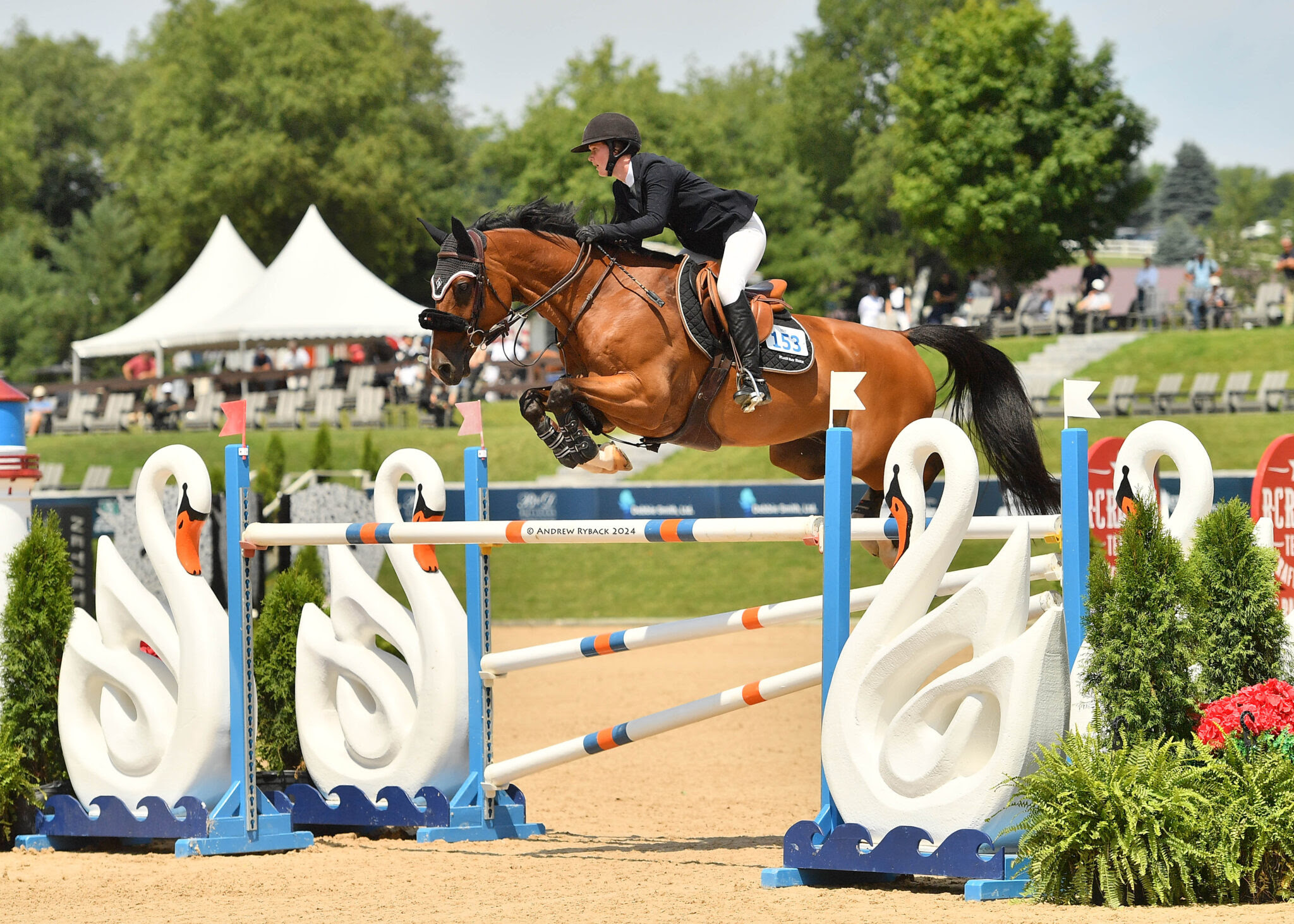With the biggest turnout ever experienced at a Sports Forum, the second day of sessions further confirmed and highlighted the equestrian community’s desire to work together and to find solutions that would be beneficial to all the stakeholder groups, with the wellbeing of the horse and the future of the sport at the heart of all considerations.
“What we have seen over these past days is a real commitment to community-led change but also accountability”, said FEI President Ingmar De Vos.
“We are all in this together, and the discussions and healthy debate at this year’s Sports Forum is a testament to this collective responsibility we all share with regards to our horses, our sport, our industry and especially the legacy we want to leave for the next generations of equestrians.”
The day began with a session dedicated to the Cost of Jumping Events with representatives from all the key stakeholder groups, namely François Mathy Jr (BEL) and Gaj Riossa (SLO) representing the International Jumping Riders Club (IJRC), Peter Bollen (BEL) and Ian Allison representing Equestrian Organisers (EO), Dominique Mégret (FRA) from the Jumping Owners Club (JOC), and Ali Küçük (TUR) from the International Jumping Officials Club (IJOC).
FEI Secretary General Sabrina Ibáñez opened and went on to moderate the session, with FEI CFO Claude Praz providing a detailed overview of the financial situation around Prize Money requirements, including the current discrepancy in the conversion system. A new proposed system for 2024 was presented which would see the FEI break away from CHF, and establish the EUR as the new base currency, with the USD as the second currency, and set at today’s exchange rate of 1.10. A second proposal around the introduction of a minimum prize money requirement for CSI1* also generated significant debate which for most regions outside of Western Europe and the US was deemed unrealistic. Concerns which were addressed by the FEI Jumping Committee Chair Stephan Ellenbruch, reassuring the delegates that the FEI Jumping Committee would seek to find solutions that are relevant to all regions of the world.
Entry fees and the costs associated with rising mandatory fees were also raised, with youth and accessibility to the sport key to the discussion. For the panellists and the delegates, these discussions were essential and ultimately required each and every stakeholder group to ask themselves what they wanted for the sport, the future of the sport and the accessibility for young riders and developing equestrian nations in the upper echelons of the sport. The FEI Secretary General concluded the session noting that a dedicated Working group involving all the stakeholders would be created to take discussions further and find sustainable solutions.
Second on the agenda were the Key Event Requirements led by FEI Director of Games Operations Tim Hadaway. He opened the Session with an overview and background to the FEI Event Standards project, which included a mapping exercise and a survey, with the results presented at the FEI Sports Forum last year, namely 14 Key Event Requirements (KERs).
These are: 1) Event Biosecurity; 2) Veterinary Services & Facilities; 3) Stable Cleanliness and Disinfection; 4) Stable Security & Access Control; 5) Stable Size; 6) Stable Ventilation; 7) Drinking Water for Horses in Stables; 8) Fire Precautions & Safety Procedures in Stables; 9) Stable Area Circulation; 10) Horse Inspection; 11) Medical Services; 12) Field of Play; 13) Adequate Availability to Training/Schooling; 14) Footing.
The presentation showed that the vast majority of the KERs (1-10) identified were related to horse welfare and horse & human safety, and were already covered under the FEI Veterinary Regulations. Medical services (KER 11) is covered under the FEI General Regulations, while Field of Play, Adequate Availability to Training/Schooling, and Footing (KERs 12, 13, and 14) were covered under the specific regulations for FEI Disciplines.
The last session of the FEI Sports Forum 2023 was dedicated to the FEI Endurance Rules, which this year are undergoing full revision.
The session included a presentation of the main proposals made by a panel consisting of the Chair of the FEI Endurance Committee Christian Lozano (FRA), Deputy Chair Dr Sarah Coombs (GBR), and FEI Endurance Director Christina Abu-Dayyeh. “This process has attracted strong interest from the community and proposed rule changes have been received from over 20 National Federations,” Christian Lozano said in his introduction. “We are always seeking to improve and better protect horse welfare as well as find systems to reward positive action. The modifications presented today go in that direction.” The feedback received from the Sports Forum delegates was taken on board by the FEI Endurance Committee and Headquarters and work to finalise the proposed rule changes and put them forward to the vote of the General Assembly, which will take place in November 2023, will continue in accordance with the FEI Rules Revision Policy.


